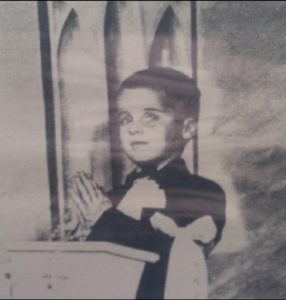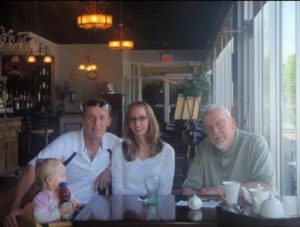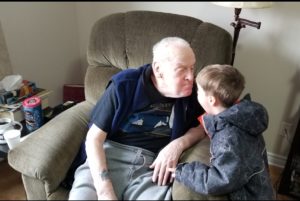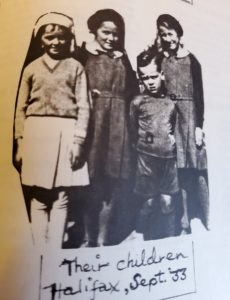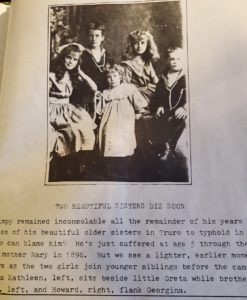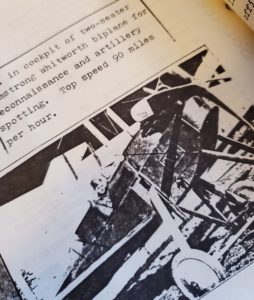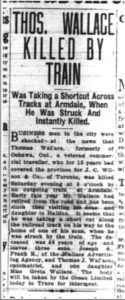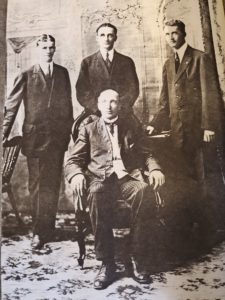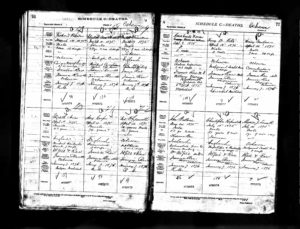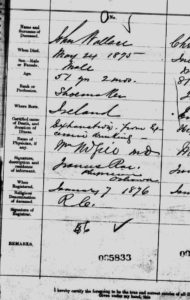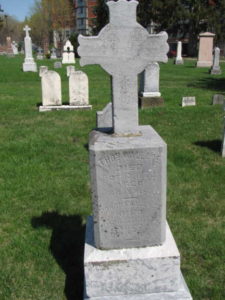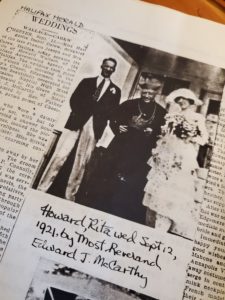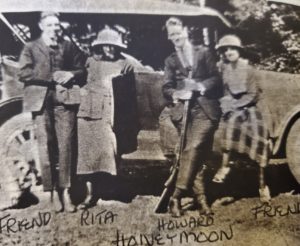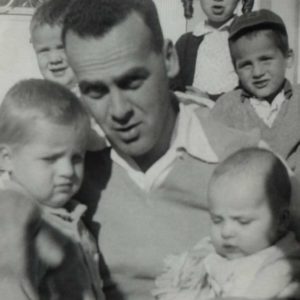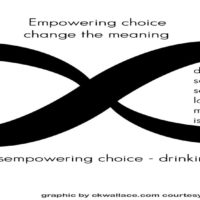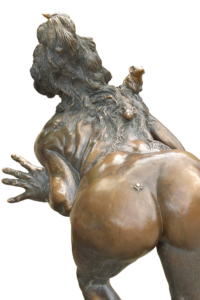Every Valentine’s Day is a little special to me now, whereas for a long time it held little appeal. Possibly because it was often a painful reminder of my inadequacy as a kind and thoughtful partner. Or, maybe it was that I didn’t care, or could not care. It’s easy to throw stones at capitalism’s manipulative commercialization of human sentiment. Heck, much of that criticism is justified.
But, here we have it, and there are only so many days of the year where a man is called upon to demonstrably honour his significant other: anniversaries, birthdays, Christmas and Valentine’s Day.
Mother’s Day is for her children and less her husband, but some think it should be included. A rule could be if your mother is alive, it is she who takes precedence. With an option to honour the mother of your children once dear old ma has passed. Missus taught me that after I went to visit my mother three hours away while she stayed home with our six-week-old daughter, on her first Mother’s Day.
Of course, men love rules and this one could be debated. Debate away, I say.
Then, there’s the “I celebrate her every day!” angle. This is a fair assumption. Many men do.
I know I’m angling for any reason to show my daily appreciation for Melissa. It’s a small pastime of mine, perhaps truly a way for me to practice being prosocial. I’ve learned it’s easy to take each other for granted so I’ve made it a habit to appreciate more this time around. I’m fourteen years in.
Of course, with my background, I needed to work at being nice. Maybe, most of us do.
I was a nice kid. Nice like the fluffy white lamb-shaped cake decorated with white icing signifying purity, and ample white coconut to mimic lambswool, which my Godmother Marie Chenier had made for my First Communion. For me? Yes, for me! Over the years that followed, from altar boy and class president and cub and boy scout and neighbourhood chore entrepreneur, there was a silencing of the lamb. A fractious relationship with my father anchoring and compounding my confusion in a small house filled with frightened children, I emerged a decade later decidedly a Black Sheep.
Funny how that works. It should be no surprise I’m an extravert, scoring in the 95th percentile on the Big Five Aspects scale. Assertiveness? More than 97. You know how those glib psychopaths are, friendly, talkative, their glad-handing masking darkness.
I have some of that. It’s handy.
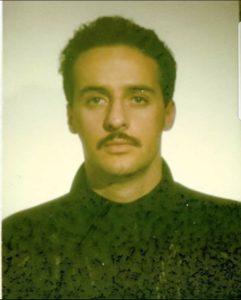
Where being an extravert (spelled like Jung did) has its advantages, it’s that damn French saying again: I think it’s spelled, “Ont as tous les defauts de nos qualities.” What it means is we all have the faults of our qualities. All of my qualities are tempered with faults. I know , context is everything.
Extraverts live very much in the present. Yup. Confession: I’ve never been able to read Eckart Tolle’s famous book, The Power of Now. It’s right here on my bookshelf as I type this, still unfinished after two decades. To me, it’s the most repetitiously hypnotic text and for this reason, I recommend it to my insomnia clients. Of course, there is danger in reading to go to sleep. It could mean any reading eventually makes you slumber. Cross that bridge when you come to it, I say. If you are kept awake by a ruminating brain, for now, read Tolle.
Introverts live a little more in the future. That’s not me. Thank God missus is introverted, or I’d never have an educational saving plan for my children. I never would have figured out the Riddle of Addiction because it was her nudging which prompted me to take a good hard look at the whole phenomena, its trends and implications. After practicing and tweaking my approach, I’ve been able to reach folks with this. Doesn’t seem to matter what obsession, I can help you cure any addiction in 90 days.
Which brings me back to Valentine’s Day, the one at my place. I’ve written before how when missus and I were first dating I gave her fair warning. I admitted that I would likely forget all the aforementioned days she was due my acknowledgement. She was amused at my confession. And, she was ahead of me.
She didn’t suggest but TOLD me what to do. “Here’s what you are going to do,” she said, before instructing me to head to the nearest drugstore or card shop. “You will buy up a supply of cards for my birthday and whatever else days you want, and you will keep them in that filing cabinet of yours. So, if you wake up some morning and realize you have forgotten, you can wait until my back is turned and get one of those cards, fill it out, and leave it on the kitchen table so I will know you care and thought of me.” I was dumbfounded, of course.
“Will that work?” I remember asking. “Yes, it will,” she assured me. It was at that moment that I knew she was something special. Decades of guilt and shame about forgetting birthdays and anniversaries came tumbling down at once. So, off I went to the drugstore and did exactly as she instructed.
And, it worked. In fact, it worked earlier this month as she sat on my office couch and asked me point blank, “Did you forget my birthday?” before heading out. I could have lied. I’m glib after all. If anyone could look her straight in the eye and offer her some version of bullshit, it’s me. Yet, I also know that when people are looking for bullshit, it’s much easier to find. I learned decades ago that gig is up. Honesty is my policy. It’s not worth the time and effort nor the consequences for either to dabble in deception.
“Yup, completely,” I admitted, adding, “I thought I had this one because I’ve been thinking about it since the new year but sure enough, come the day, it’s out of my mind.” She smiled, in a sort of womanly self-satisfying way, perhaps knowing she chose long ago to not make this hill hers to die on. God, I lust after that woman. I’m just as sure her smile was deeper.
You see, when she instructed me all those years ago by offering her brilliant practicality, effectively to “let me off the hook” I’d put myself on, I’m pretty sure she knew exactly what she was doing.
Unbeknownst to me , slipped into her instructions was the element of time. So grateful was I to escape the shame of my decades of disappointing other women, that pain serving as motivation, I followed her orders blindly, I never considered the bigger picture.
She had just made me commit to years with her. Years son. Damn, she’s good. Women are closers.
So, it was this morning whilst the two of us were awakening to the sounds of children and a dog scratching in her crate, missus wished me a Happy Valentine’s Day. I promptly grabbed her ass. “Oh, that’s right,” I answered, “Happy Valentine’s Day to you too.” Forgot completely, again.
It’s not like it wasn’t mentioned in the house. Early this week, the kids were busy filling out cards for their schoolmates. Howie brought a single fake rose to each of his teaching assistants. Last year he gave one of them chocolates and said he loved her. Since her husband forgot Valentine’s Day completely that evening, Howie stole her heart. I’m not sure her husband registered the competition as she told him.
Missus went off to work for a few hours this morning. I work from home and today is the second in a row opportunistic no-school day thanks to striking teachers in the province. With Monday Canada’s Family Day (an excuse to have a long weekend in February), the teachers gave themselves a five-day holiday. Me and the kids checked the card stash. They know about the card stash because of mom’s birthday less than two weeks ago. I think that was a strike-day too.
The cool thing is my father died in November. Not that it was cool that he died, nor that November was a cold month. Although he suffered his last year as dementia ravaged his mind, it was bittersweet to see him go. The cool part is when it was decided by my sisters that dad would no longer be able to return home, it was me who took his records and old photos for safekeeping. That included his filing cabinet, old correspondence and folders chock full of carefully labeled newspaper clippings for reference.
But stashed in the back of his cabinet was a big stash of cards. Blank cards for all occasions.
They say it’s inevitable we find in our partners something of our parents. I supposed it’s easy to stretch what you like about somebody into something you appreciate in your parent or parents. It’s natural enough and this can work out well or poorly, depending.
The very first occasion where missus met my family was at Ma’s 80th birthday party. It was held at a private club downtown and I sent ma and her pals to the party in a big white limousine. Sure enough, ma and missus hit it off. Both were introverts, wall flower types, and spent the time sitting together. Missus never felt more appreciated than that day, remarking how alike her and ma were. I beamed at her happiness, oblivious to the wider implications.
Looks like dear old ma had contrived the same card hack for my father decades before missus did for me. Why haven’t I ever heard of it before then if it’s so common? Probably because dad felt the same shame I did, and ma was as introverted as is my missus. I suppose if you have too public a system for making the effort to acknowledge someone else it might also detract from the gesture somehow too.
I know this because of another thing about Valentine’s Day. It’s often not so much the private gesture but if a girl has her druthers, being singled out at work in front of peers as a box of roses arrives just for her from a romantic interest is heady stuff. It says she is loved; that despite the competition all around her she has backup. I had to own a flower shop at one point to learn that one. Women told me.
But missus went deeper and helped me understand things more clearly. After some of my antics while out with others early in our time, she summed it up this way. “I want others to look at us together and want to be me, not look at us and feel sorry for me that I’m with you.” Boom!
I was probably fifty when she told me that. This young woman from humble beginnings is in so many ways much wiser than me. Women are the primary caregivers the planet over and most of them possess a depth of understanding men often lack. That’s been my experience. She knows how to line up allies and cut loose competition. The good ones don’t have time for assholes of either sex.
Good women also make good men better. A man with a loyal woman by his side has the wind at his back; though, he better stay-out in front of her if he expects to feel it.
A lot of what holds people back in life has to do with shame. Can’t take compliments or criticism? That’s usually shame. Chronic procrastinator? Perfectionism rooted in shame. Not living the life you know you were meant to live? Look at how much shame you carry. It’s a consequence of our interdependence on each other. By itself, it is neither good nor bad except the meaning we give it. A mild corrective within a family can, with repetition and escalation, evolve into a crushing sense of unworthiness.
When we feel like there is something wrong with us, that we are “broken” on some level, shame has taken hold and acts as a burdensome filter through which life is seen. It can become like wearing heavy winter clothes at the beach on a warm summer’s day. Sometimes, it can be like trying to swim with heavy work boots on.
That’s the thing about fatherhood. It’s not a right as the Incels would suggest. Not at all. It’s a not even just an obligation though plenty of men in or from difficult marriages will unfortunately sometimes see it that way. It’s more that fatherhood is a privilege, something that can define a man. If motherhood is part of a woman’s Hero’s Journey, fatherhood is similar. More so, it’s a chance to be someone’s hero.
My father held on to his shame for most of his ninety years. His own father disowned him, despite their looking like different-aged siblings. As my grandfather’s only son, the youngest child with three older sisters, my dad needed his father. It was not to be. Grandpa spent most of my father’s early years institutionalized and didn’t reconnect with his family for decades. Grandfather was still a jerk.
My father did his best but inevitably passed along his pain to his children. He never apologized but he demonstrated his regret. For example, as an editor, he taught me to write when I was in my late forties. It started when he sent back a letter I had written home corrected with red editor’s pencil. At first put off, I quickly realized his corrections made sense.
I decided to take the high road and wrote him back in thanks. He answered. Told me if I was going to write him to make it double spaced so he could do his job. So, I did, and after several years he handed back an essay I had given him and said there was nothing to correct. I’ll never forget that day.
It was as if the more I knew myself the more I knew him. It was our unspoken understanding, and our private conversations in his last few years were honest and warm and unreservedly candid.
I realized later I had subconsciously become a gangster to protect myself from his wrath experienced in my early life. It took years and deep dives into my subconscious to unburden the pain I held within me in exile. The tough guy was my protector.
Little Chrissie, that’s what they called me as very young boy in short pants. Well, I got you now Little Chrissie. No one will hurt you again. We are a team you and I, and I’m strong enough and tough enough for us both. Stick with me kid, I have this figured out for us both. It’s going to be OK.
Dad held his father’s hand when grandpa passed away, secretly hoping for a reconciliation that never came. With several of my siblings, in November I held my father when he died. No reconciliation required.
I’m so glad I forgot today was Valentine’s Day. I’m so happy to find this card tucked away in my father’s collection of cards. Thanks Pops. Also, grateful my children were here with me this morning so that they could participate in writing in a little something for their ma to which I added my expected flirtations for the woman I love, my Melissa.
She came home and found the card in its red envelope on the kitchen table with her name on it. I could hear her voice exclaim, “A card? For me?” She was thrilled. Oh Jiggles…
It was from all us: from where we have been and where we are going.
We exist in each other.
Happy Valentine’s Day.
Christopher K Wallace
©14 February, 2020
all rights reserved
ckwallace.com
advisortomen.com
Advisor & Mentor
For a free strategy session click here

